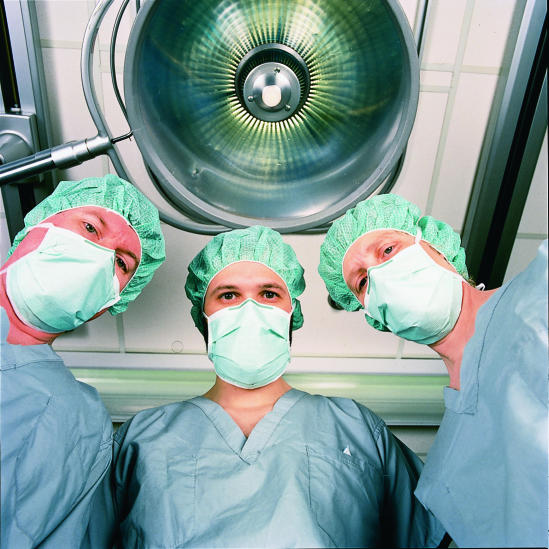The incalculable number of medical problems and questions to which the medical profession has no certain answer is balanced by the incalculable number of times that its members none the less provide one. Many patients, not unnaturally, want definitive answers on diagnosis, prognosis, and side effects. When doctors are uncertain or do not know, they think that the patient should believe otherwise. An answer, any answer, it is felt, assuages the patient’s fear and anxiety, as well as confirming a doctor’s omniscience. Abating a patient’s anxiety indubitably promotes their health, but what if the answers given are wrong?
Doctors can be comparatively certain about some matters—for example, uncomplicated appendicectomy or antibiotics for impetigo. They can give an educated guess about some others—for example, Bell’s palsy, treated asthma—and have little idea about others—for example, the outcome of some major operations, the value of antidepressants, the side effects of many drugs. That they sometimes dissemble with their confident answers is an involuntary habit that can be medically dangerous, not to say dishonest.
The dangers of a premature diagnosis
The diagnosis is often unknown in the early stages of many illnesses. There are grave risks in authoritatively suggesting a diagnosis at this stage. Consider a child with the common medley of symptoms of abdominal pain, fever, and vomiting, which can be the start of a score or more of childhood diseases, some benign, some, if missed, disastrous. The general practitioner tells the anxious mother: “I think it is mesenteric adenitis [benign and self limiting]. Give fluids and paracetamol and your child should soon be better.” Sensible of other possibilities, the doctor continues: “Call the surgery again if things do not settle.” The mother, who privately thinks that the problem might have been appendicitis, has had her anxiety moderated and, not unnaturally, takes her eye off the ball. Her threshold of suspicion is raised: doctor’s diagnosis is equivalent to doctor’s understanding. New and changing symptoms in her child are attributed to the doctor’s diagnosis. The child does not get better, and the mother calls the surgery again three days later. The child is admitted with a ruptured appendix and an abdomen full of pus.
The provision of a named diagnosis changed the medical course by altering the mother’s perception and subduing her natural instinct. (It also made it less likely that the doctor would be called again in the near future.)
Consider a 59 year old man with a history of peptic ulcer who reports that he has heartburn and difficulty in swallowing. The doctor opines that it is the old problem, although the symptoms are different. In truth, the doctor is uncertain but provides a satisfying end to the consultation (for patient and doctor) by saying, “It is the ulcer. Take these pills, but come back and see me if things don’t settle.” The heartburn improves, but the dysphagia does not. Doctor has said it is the ulcer, so the patient’s anxiety is ameliorated. Patients often have a touching faith (and trust) in doctors’ edicts, which sustains them throughout mounting medical problems. Twenty weeks later the patient returns to the doctor and an oesophageal carcinoma is diagnosed.1
The provision of a diagnosis again changed things, and the beneficiary was not the patient. Notice that these sorts of incidents often pertain to potentially treatable diseae.
The safety of uncertainty
Being uncertain is part of normal medical practice. However, doctors rarely write, “Don’t know” in the records. It is as though the doctor needs to come up with a diagnosis so as not to seem impotent or deficient to the patient (and colleagues). Yet it is safer to candidly write, “Diagnosis: don’t know” and then append a differential diagnosis. This method has the important advantage of keeping the patient and doctor alert, so deterring complacency. Also, any new doctor reading “don’t know” in a record has his or her attention immediately alerted and is less likely to follow the wrong path.
Signs and symptoms, even investigations, must not be squeezed into an unpromising diagnosis. Hospital doctors and general practitioners alike know how often they are dazzled by one diagnosis, even when there is an odd feel to the case. The eventual correct diagnosis makes this thinking paralysis poignantly evident.
Innumerable other questions, including operative outcomes, side effects, and prognoses, can only sometimes be confidently addressed. A medical response of “I don’t know the exact answer” is a preamble to be seriously considered. Patients may, eventually, appreciate such candour, for they can choose to decline the proposed medical intervention without torturing themselves that they are missing a sovereign remedy—one which, in truth, may be anything but.2
Patients should learn that “don’t know” does not mean suboptimal medicine or “don’t care.” Doctors should understand that “don’t know,” especially in matters of diagnosis, is a signal, not least to themselves, that vigilance and thought must be stepped up. Provided that the term is always seen as the flashing light indicating unfinished and perhaps urgent business, it is indicative not of clinical weakness but of clinical strength.
Figure.
Don’t knows
References
- 1.Martin IG, Young S, Sue-Ling H, Johnston D. Delays in the diagnosis of oesophagogastric cancer: a consecutive series of cases. BMJ. 1997;314:467–470. doi: 10.1136/bmj.314.7079.467. [DOI] [PMC free article] [PubMed] [Google Scholar]
- 2.Pickering WG. Does medical treatment mean patient benefit? Lancet. 1996;347:379–380. doi: 10.1016/s0140-6736(96)90544-9. [DOI] [PubMed] [Google Scholar]



